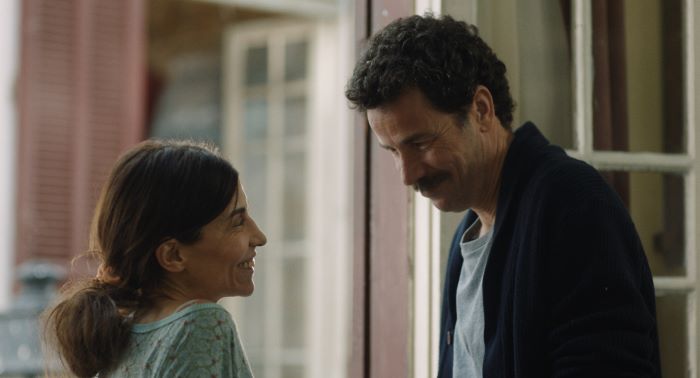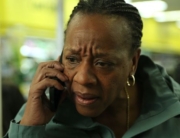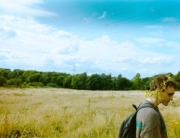Melancholy and tentative hope are stitched together in Maryam Touzani’s bittersweet story of a Moroccan tailor shop and the three lonely yet interwoven souls within. The film is sumptuously shot and executed with sensitivity—almost too much sensitivity. Some will find the close-knit ambience absorbing, while others may feel confined by the tight story line and the characters’ mostly unspoken burdens.
Halim (Saleh Bakri), a tailor with a golden touch, takes pride in his exquisite hand sewing, a craft his colleagues abandoned long ago. Problem is, customers want dresses for special occasions churned out cheaper and especially faster. Halim leaves putting off impatient clients at the shop to his wife, Mina (Lubna Azabal), whose street-smart flintiness hides the fact that she is dying of cancer.
The talented needleman also has a secret, and indeed a whole secret life, of his own. Though an affectionate if somewhat distant husband, he seeks sex with other men. The shop’s poor young apprentice, Youssef (Ayoub Missioui), will help Halim see new possibilities in this orientation as the trainee grows more important to Halim and Mina’s business—and their relationship. Meanwhile, a gorgeous blue caftan coveted by rivals takes on symbolic importance in the trio’s lives and in the story.
Existence ostensibly goes on as normal as internal conflicts swirl below the surface. Beneath her outward acceptance of her fate, Mina desperately wants to live. Her flirtations with her husband and her ploys for affection from him are tolerated by him, but not her desire for sex. She notices the building rapport between Halim and Youssef as they measure, stitch, and handle sumptuous cloth (the film makes much of the material’s sensuality—again, almost too much) and aims to derail it.
But Halim ignores his dying wife’s machinations. Bakri, as Halim, portrays a man who has learned to use a mild manner to stonewall comments he doesn’t want to hear and deflect questions he doesn’t want to answer. His performance is composed and a bit impervious; the camera is very compelled by the actor and lingers a little too long over his weary, handsome face.
The most dynamic characterization is that of Youssef, to which actor Missioui brings a restless energy. The movie’s best scene takes place when Youssef wordlessly and impulsively offers a pent-up Halim a connection. It’s an emotional breakthrough welcomed in a film where Halim and Mina stoically accept their lot with a sigh and death comes nearer every day.
A reckoning of sorts arrives for these three, but a long stretch of resignation and weary coping have made us accept their unhappy fates before they have. The Blue Caftan is beautiful looking and clearly crafted with love, but it can also feel a little stifling before the final curtain.

















Leave A Comment